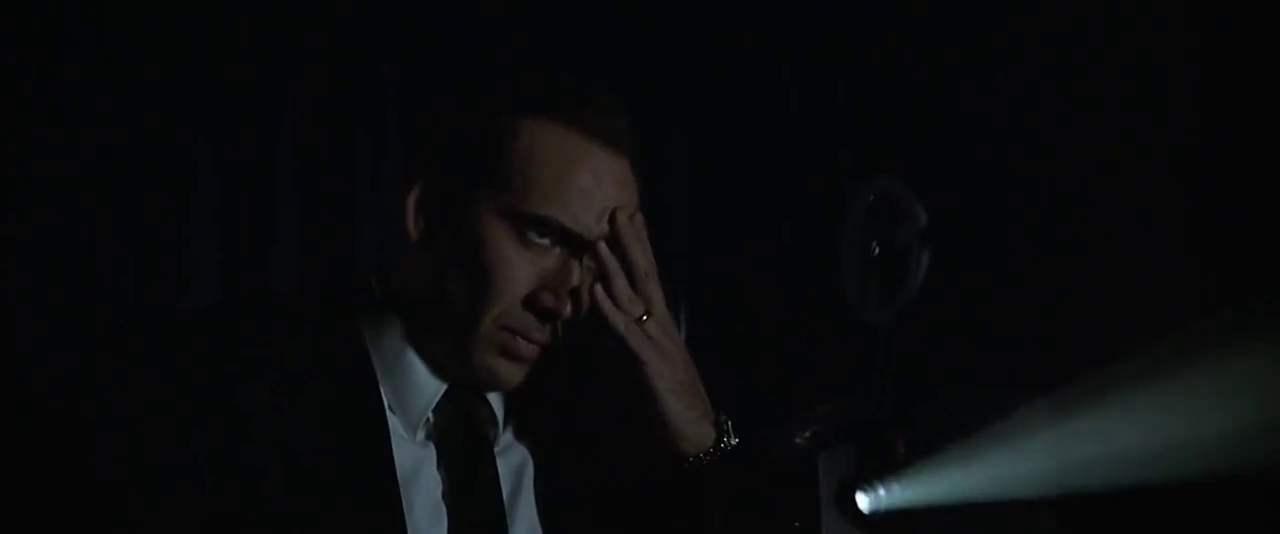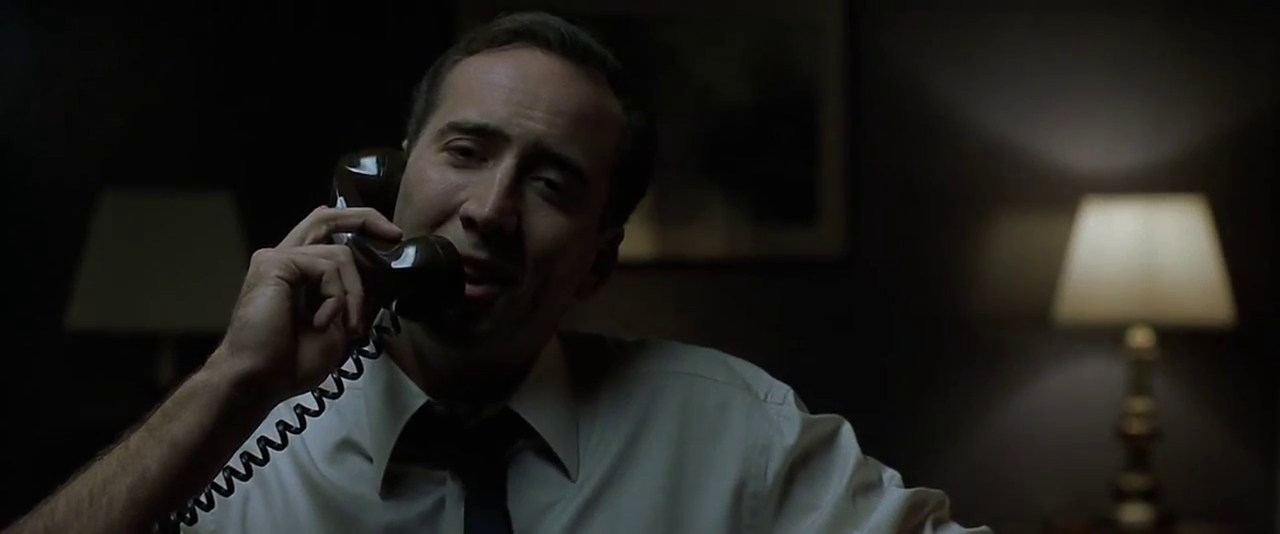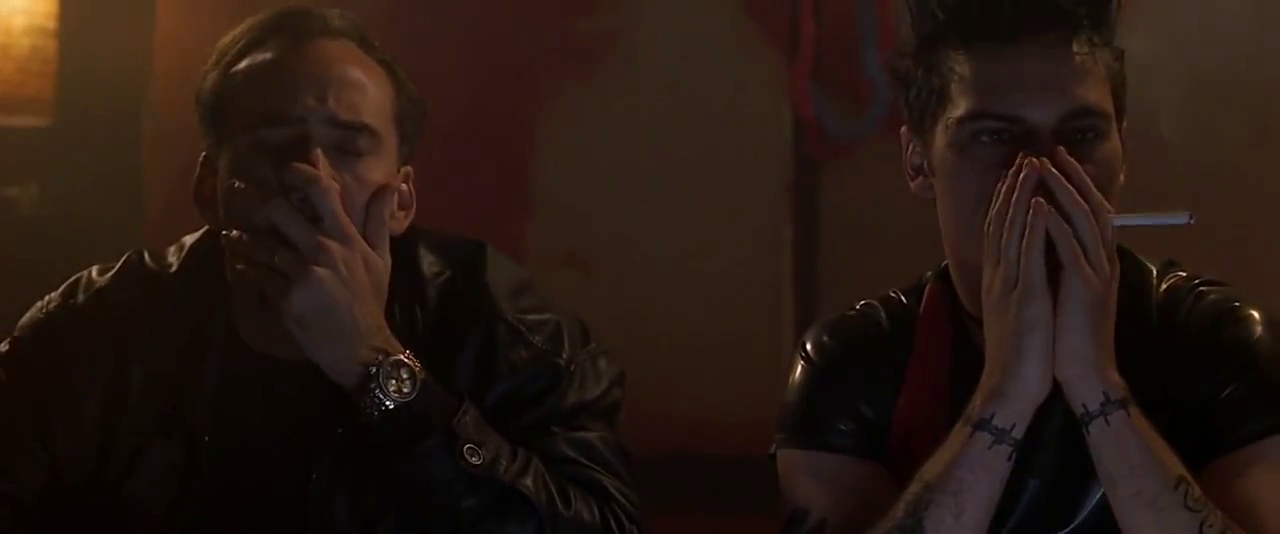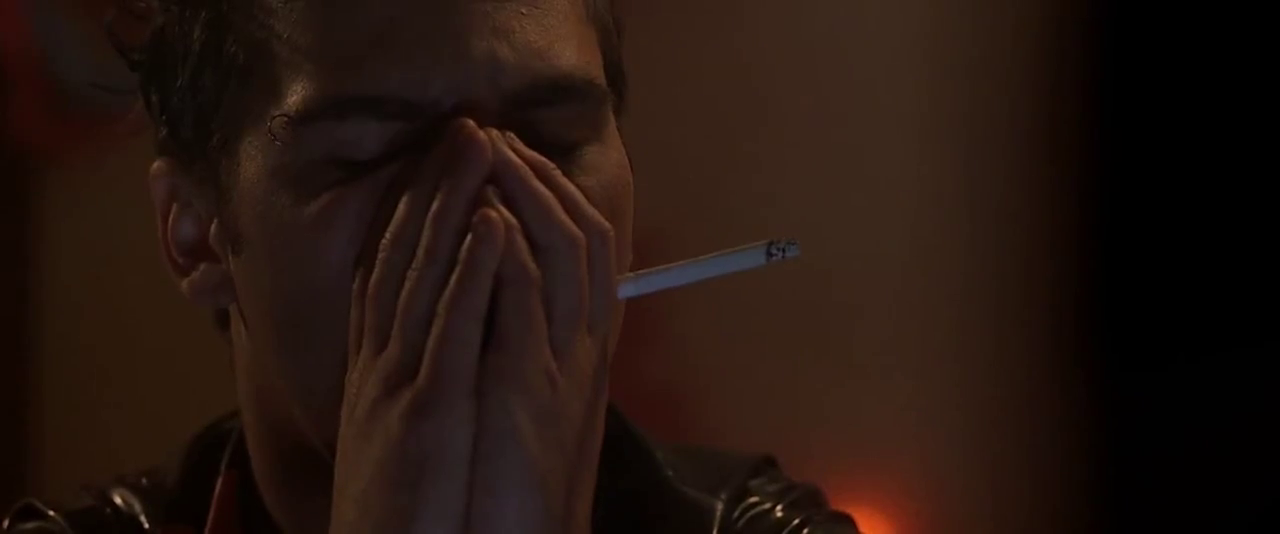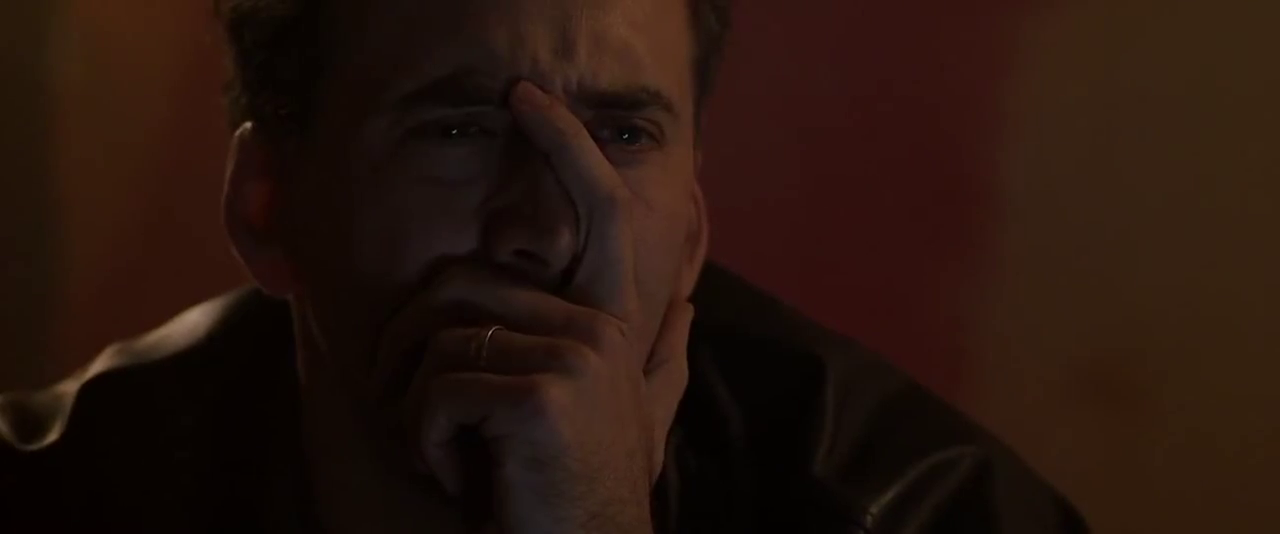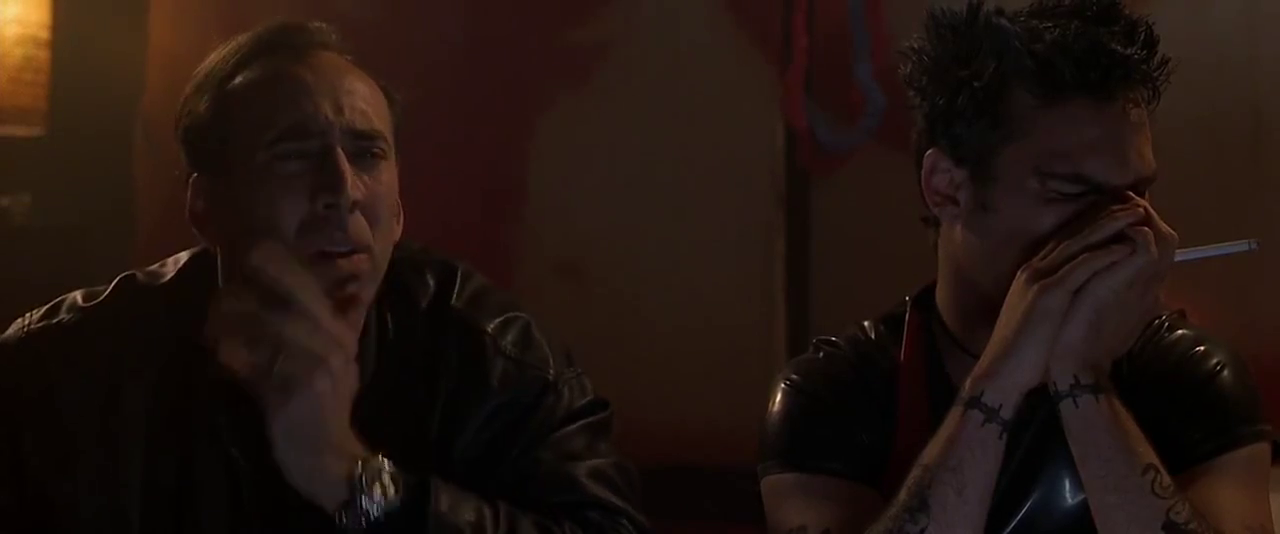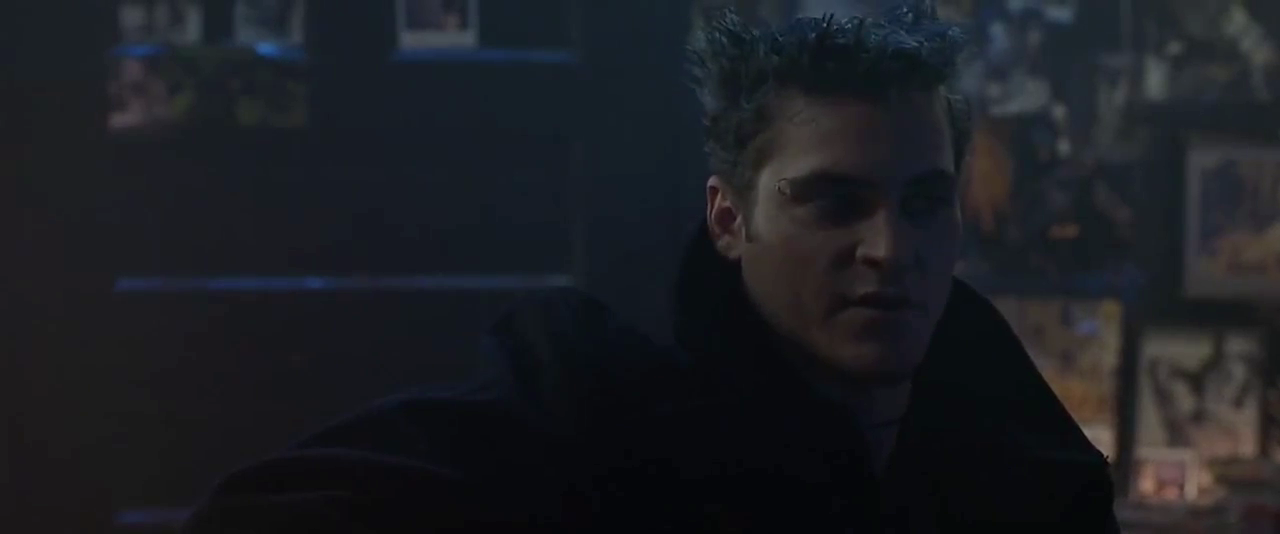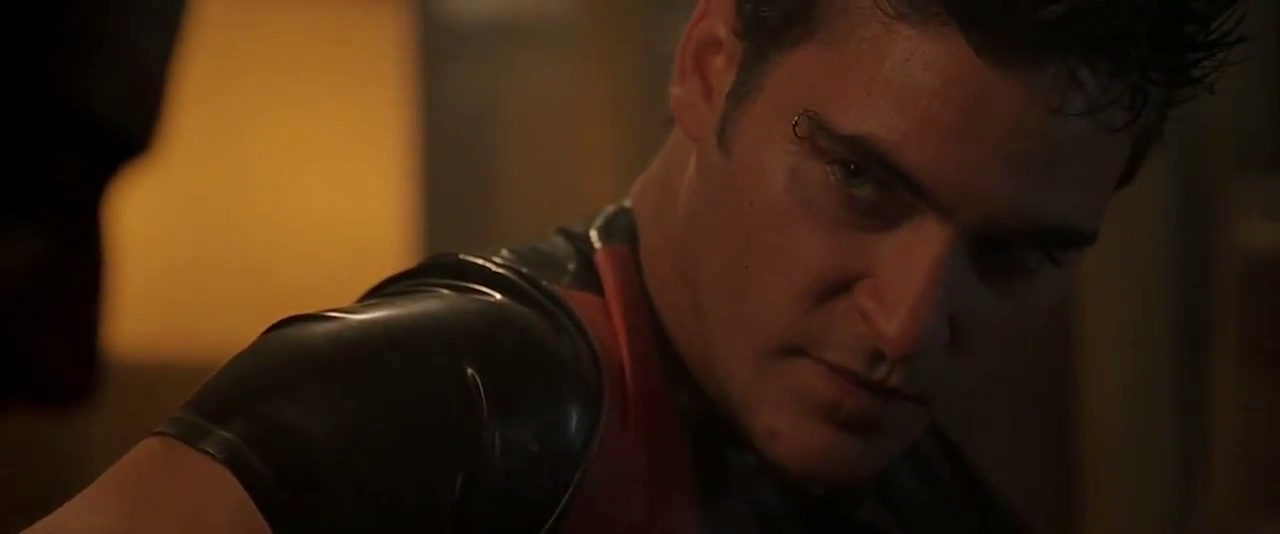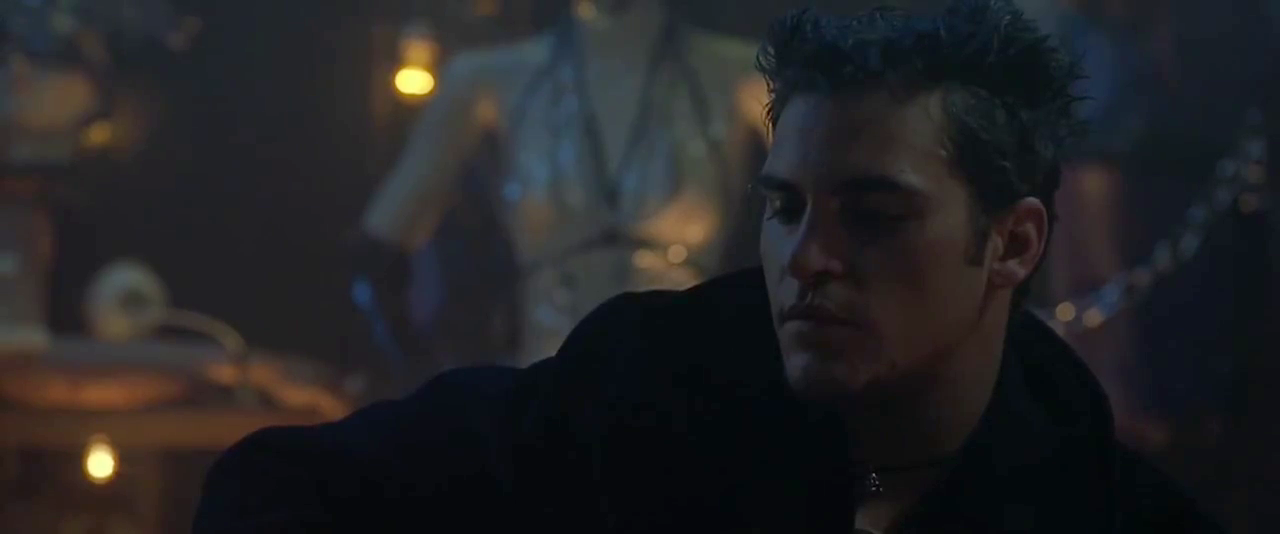8MM (1999)
written by: Andrew Kevin Walker
starring: Nicolas Cage, Joaquin Phoenix, Catherine Keener, James Gandolfini, and Peter Stormare
How do we feel about ugliness? I personally don't love it, and don't enjoy when movies luxuriate in it. I have a hard time with the films of Nicolas Winding Refn, for example, because pretty much without exception I find them ugly and nasty, without point or purpose. It's just horrible, and hard to watch, and I get the sense that Refn likes how horrible it is, and wants us all to like horribleness too. It's ugly for the sake of showing off ugliness, and I have very little taste for that.
8MM, Schumacher's first movie of 1999, is ugly. It's plot pertains to ugliness, it's characters each have a deep ugliness inside of them, even the good guys. But unlike a Refn movie (sorry to pick on him, but god do I hate Only God Forgives), 8MM isn't ugly for the sake of ugliness. It's ugly, but it hates ugliness. When it falls deeper into the grit and grime of a bad world full of nasty people, the movie maintains it's perspective. There is ugliness all around us, it tells us, but that doesn't mean we should succumb to it. God forbid we embrace it. Maybe that's a naive way to come at the world, but I like that perspective.
It starts with Tom Welles (Nicolas Cage, vaguely dead inside but sometimes it works), a small time private investigator. He works divorce cases, mostly, and lies to his wife about how much he smokes. But he loves her, and loves his baby daughter, and they love him. And the movie gives us like, ten minutes of this nice family stuff. It's patient that way, and in many ways throughout that I appreciated. Anyway, to the action of the movie: Welles gets called in on a case by a wealthy old widow who found what seems to be a snuff film in her dead husband's safe. He tells her snuff films are essentially urban legends, and this one is probably a fake. Still, the widow says, find out what happened to the girl in the film. Alive or dead, she wants to know for sure.
So it begins. The first hour and a half of this two hour movie is a pretty decent investigative thriller. He does the shoe leather work. Welles spends a week going through missing persons archives, looking at pictures. He finds the girl from the film and goes to see her mother. The visit with the mother (Amy Morton) is sad and tired. The girl from the film, Mary-Anne, has been missing for six or seven years; her mother is still hopeful, but worn down. Welles is sympathetic, and uncomfortable. But her pain touches him, and his commitment to finding answers deepens. She, too, tells him she wants to know what happened to her daughter. Alive or dead, she wants the truth. At the mothers house, he finds a diary that sends him to California. Hollywood, the land of dreams and nightmares, all on the flip sides of a coin.
Look at this shot! Half the frame is black! That's so bold! I love it!
Up to this point, the movie has been full on David Fincher-- gray and green and dark, grimy and washed out. For half an hour, the only red is the blood in the snuff film. Andrew Kevin Walker, who wrote this film, also wrote Se7en (which, fun fact, IMDB won't recognize if you type it in as "Seven"), and seems to have been pretty happy with how that movie turned out. Apparently, he hated how 8MM turned out. But you can see the connective tissue between the two films-- the grime, the ugliness, the dark underbelly of the world. That Schumacher apparently chose to take a page out of Fincher's visual book ties them even closer together. But there's a difference that's almost visceral. David Fincher has a special skill: to make the ugly and grotesque look interesting. He has a cold observers eye for his dark worlds. Occasionally his cold brutality takes on a twinge of something beautiful. Schumacher never allows the hideousness of the world look beautiful, and that's key. Fincher accepts the bleakness of his world, even embraces it; Schumacher wants us to be continually disgusted by it. The luridness is never appealing, and each glimpse at depravity and pain is coupled with a reaction shot of shock and disgust.
California is sunnier, brighter, more colorful. But the people are still gray and scummy, tired and worn down, especially once Welles starts to delve into the world of hardcore porn. Pretty quickly he meets Max California (Joaquin Phoenix, astounding as ever), a failed rock star who works in an adult bookstore. With his tattoos, piercings, blue hair and pleather, he looks the part of his slimey job, but reads Truman Capote behind the counter. In Max, Welles finds a helpmate. Max is scuzzy, but interested in Welles' work and smart enough to be interesting and helpful. He's the best part of the movie, and like his namesake is a sunnier, brighter, more colorful character. Early on, Max tells Welles that when you dance with the devil, the devil doesn't change; you do. Max has clearly changed to suit his devils, but underneath is still someone sweet, soft, and smart enough to be sensitive.
(and please check out one of many long takes coupled with a smooth camera move)
8MM has some real tenderness for Max, and thank god for that. It would be easy for the scuzzy connection Welles makes to be simply scuzzy, but Max is a decent, gentle person and that decency helps Welles stay decent. He leads Welles to underground porn exchanges, points out the worst stuff. This is his world and his business, but that doesn't mean he likes it or supports it. "I don't buy it, I don't endorse it," he says, and is always cringing away from the worst parts of what he shows Welles. I love Max California, if it wasn't clear. His inclusion in the movie brings some needed humanity to the grit and grime. With Welles' wife back in Pennsylvania, Welles needs something not-horrible to cling to and someone to talk to, and Max is it. Joaquin delivers some absolute star work here-- his naturally soft and small voice adds inherent gentleness to Max, and his bright eyes twinkle throughout. There's a complication to him that adds richness to the flat unpleasantness of the story he's a part of. Through Max, 8MM brushes against that most Schumacher of themes: the importance and validity of found and self-made families. There are a couple patient, necessary scenes where Welles asks Max why he does what he does. Isn't he better than porn and depravity? "You seem smarter than to do this stuff," Welles says. Max doesn't have a good response, and that aching sense of wanting more aligns the two of them. They connect, they bond. Max has a heart, and his heart becomes the heart of the movie.
Welles and Max follow a lead from hack talent agent Eddie Poole (James Gandolfini, appropriately yucky) to director Dino Velvet (Peter Stromare, even yuckier) in New York. Max insists on going along, and in the first few scenes in New York, Max is giddy at experiencing a place he's never been before. New York is less colorful than Los Angeles, grayer and bleaker, to the extent that even Max's hair is somewhat dimmed and washed out in color. But he remains buoyant. Where the ugliness of Max's world has dragged Welles down (and Cage's performance, while always somewhat stiff and hangdog, gets more and more reserved and closed off), there's still nice things out there for Max. It's sweet, and he's sweet, and in a movie this dark, that little sweetness is a vital bright spot. In New York, Max and Welles find even worse pornographic depths, including porn that is promised to them as genuine snuff. The scene where they watch it, sitting side by side, is almost entirely the two of them being appalled and horrified. They hate it, everything about it, and I think it's to the benefit of the movie to show our heroes being horrified by snuff. There's nothing entrancing or sickly interesting about it. It's just killing, plain and simple, and that's something to be horrified by. When they realize this particular video is fake, the wash of shuddering relief Max feels is exactly the feeling one gets walking out of a horror movie or a particularly stressful suspense thriller. That exhale is the precise feeling— thank god it’s fake. It looked amazing, and it made me feel something, but at least it’s fake. We don’t want to see the real thing. We want to see the fake version of the real thing. We want the thrill without the consequence, without the responsibility and complicity. In the end, should we be titillated by violence and horrors? I don't know. Maybe not.
We watch movies, to some extent, to see things we would never want to see in real life. We don't want to see a car crash, but it's thrilling to see one in a movie. We don't like murder, but on film, murder can feel justified, powerful, valuable, exciting. It's why we like revenge thrillers and slasher movies. How and why we watch films is all at play here, not necessarily actively or with particular nuance, but this is a movie where you, the audience, have to watch the characters watch movies. Their responses to it has to guide our response. In the fiction of a film, like a horror movie, watching a murder is mostly enticing. In the context of this film, watching a murder is horrible and only horrible. Very little of the pornography in the film is shown at all (this is a mere R-rated movie, after all), but seeing the response to it is more telling and more evocative. It's the old Hitchcock trick of imply-don't-show. The audience will fill in the worst thing they can imagine, which is worse than anything you could actually show them. Schumacher does this with aplomb throughout with his films-within-the-film. As he's a good director of actors, we get shocked and horrified faces from Cage and Phoenix, over and over, and we believe it's shocking and horrible.
When violence finally erupts into the action of 8MM, I was struck by how non-cinematic it was. In the same way that the movie shows us ugliness without glamour, it shows violence without romance. It's very matter of fact. Each gunshot and stabbing hits suddenly, without flair, and then people die. It's the banality of evil made physical. As we go into the third act of the movie, Welles asks "Why?" over and over again, to Poole and Velvet, to the lawyer who commissioned the snuff film, to the masked man who did the killing. Over and over the answer he gets amounts to "because I can, because I wanted to." It's not satisfying for Welles, and it's not satisfying to us, but that's the point. Evil happens, and it's horrible. In a final confrontation with the masked murderer, the man says to Welles, "there's no mystery. I do what I do because I want to. Because I like it." That's it. There's no greater mystery, no greater reason. Just bad people who do bad things.This is a movie that wants this man to just go home to his wife. It wants justice and fairness, but also recognizes that those things don't always exist. Vengeance is not the same as justice, good and evil walk a careful walk together. Tom Welles is a good man with good intentions, who ends up doing some bad, ugly things in the sake of something close to righteousness. And, importantly, he struggles with those bad things, and continues to struggle with those bad things. The bad things he encounters and the bad things he does will never leave him-- the final shot of the movie is a tremulous, perhaps hopeful smile from Tom to his wife. I'm okay, his eyes seem to be trying to say. See how okay I am? He's not, of course, how could he be? But he's trying. It's worth trying, because despite all the ugliness, it's not all ugly. Babies are not ugly, the love of parents and spouses is not ugly. Max California, despite his ugly trappings, is not ugly. Trying to do good, to care about a girl who went missing, is never ugly.
I think that's what 8MM comes down to. The line between good and evil, softness and hardness, brutality and gentleness, beauty and ugliness. Joel Schumacher understands beauty and ugliness. What he made here was a movie about ugliness, which is technically beautiful. He's a great technician, and he uses that expertise to deliver a movie that teeters between the two extremes at play. Not bad. Pretty impressive, in fact. There are gorgeous shots throughout, more wide shots than I usually see, and a series of noticeably long takes (which I love. What a confident move). He captures faces with immense tenderness.
Now maybe I've just talked myself into really being into this movie, but there is one aspect I was genuinely really into while I was watching: the Max and Welles stuff. My flippant Letterboxd review of this movie was that every time Joaquin Phoenix is on screen the movie improves by 70%. I think that's probably harsh, but the slowly developing friendship between Max and Welles gives the movie all the weight and humanity it has. Cage and Phoenix have a nice report, and decent chemistry. There's a little love story that starts to simmer, in a way, and by the time Welles tries to send Max away, handing him an envelope stuffed with cash and a ticket back to Los Angeles, Max refuses. "We're a team now," he protests. "We're partners. This is our big case." My heart, you know!!?? That stuff soars for me, especially in hindsight. Absolutely what I'll carry forward from this movie is Joaquin Phoenix's delicate, gentle performance and the entire Max California thing. So he's a star, and Max is lovely, and then, uh, the movie fucking kills him. And then there's another half hour of movie.
That last half hour is where things sortof crumbled for me. The first 90 minutes I was very on board with, then in the last half hour, the plot line that had lent the proceedings an air of humanity and tenderness falls away. It's another instance of non-cinematic violence, I guess, and I should like that. The baddies trick Welles to a warehouse in Brooklyn and drag in a captured and beaten Max as collateral for Welles to do what they want. He does what they want, and they kill Max anyway. It's deeply unfair, and Welles is too busy fighting for his life to do much about it. I was somewhat shocked by this turn of events. It's not what's supposed to happen in a movie. It's another non-cinematic turn the movie takes, like the simple shoe leather of the first half hour. You expect some heroic rescue, or some tragic scene. But it just... happens, and then Max is gone. I respect it, but I'm bummed by it, and the movie loses quite a bit of air. Without Max on the scene, it all feels less vital and the stakes deflate. For whatever reason, the final denouement of violence and revenge feels a little shallow.
The showdown in the warehouse feels like a good climax to the movie, and feels like it should be the end. The good guy learns the truth, beats the bad guys, gets to go home to his wife, worse for wear but well. But, you know, that's not what happens. Maybe that would be too easy, too simple. He does go home to his wife, but only to be sure she's safe. He can't talk to her about what's happened to him. There's a ten minute scene of family drama and marriage talk. What does a marriage mean if we can't trust each other? If you leave again, will there be a family here for you to come back to? I respect that scene work and that commitment of time towards real character driven consequence! That's heavy, non-action thriller stuff! Welles tells the widow who hired him the truth about the film, and she kills herself. He's haunted and freaked out, and he can't let it go. He has to go back and close out the case, for the widow, and the dead girl, and for Max. So he hunts down the remaining bad guys. But it's not heroic. It's not cool. It's just hard, and it hurts. It's plodding and heavy, and the last half hour feels like a brick around your neck.
In maybe the heaviest thing 8MM does, when Welles realizes he doesn't have the personal internal gusto to kill Eddie Poole, he steps outside and calls the murdered girl's mother. He tells her the truth, she sobs, and he asks her permission to kill the men who killed her daughter. He asks her, essentially, to talk him into doing it. Which is an amazing, insane thing for a movie to do. It's a quiet reprieve, and it's an ugly thing, and when he finally kills Poole, it doesn't feel like retribution. It shouldn't, I guess.
Remember how I said I thought the last half hour of the movie was sortof airless and dragged compared to the relatively exciting first 90 minutes? Well here I am talking about all this stuff I liked in the last half hour. I can't help it. There's cool stuff at work apparently. Maybe the deflated quality is purposeful-- there's no happy ending here, really. The girl is dead and has been for a long time, and, as Poole sneers, no one cares. But Tom Welles cares, and that's all there is. One man who cares. Woof.
The last half hour really didn't work for me in the moment. It's working for me now. A lot of the movie is that way-- in the moment, I thought Nicolas Cage was doing almost actively bad work. It doesn't bother me so much now. I really dislike the music, which is a series of wails-- mournful, perhaps, but also grating and smothering. My initial review was 3.5 stars, then I second guessed and changed it to 3, then slept on it, woke up and changed it back to 3.5. I spoke to a friend about it, and when he said it was a 1.5, I more or less agreed with him. We talked for an hour and I agreed with every negative point he made. And yet! If you look to the bottom of this already too long little piece, I think you'll see I've given it a 4. Turns out I liked it. What does it mean when a movie gets better the more you sit on it? Is that a sign of a good movie, or a mirage?
In the case of 8MM, I think it might be mostly mirage. There's good stuff in there, but maybe the movie as a movie isn't as good as I've talked myself into thinking it is. The pieces are interesting, but they don't necessarily add up. The ideas are good, but the execution maybe doesn't rise to meet them. There's a lot to like there, though, and plenty to think about, and I give it major credit for that. It's occasionally stunning in it's technical choices and achievements. It's often stylish, but not showy. It contains some quality acting. And in the end something at the heart of it touched me, and in the end I appreciate it's commitment to ugliness as ugliness. The repulsive aspects are successfully unpleasant. This isn't a fun movie to watch, but I think it might be a successful one.
Overall: ★ ★ ★ ★
Schumacherness: ★ ★ ★
Up next: Flawless (1999)

